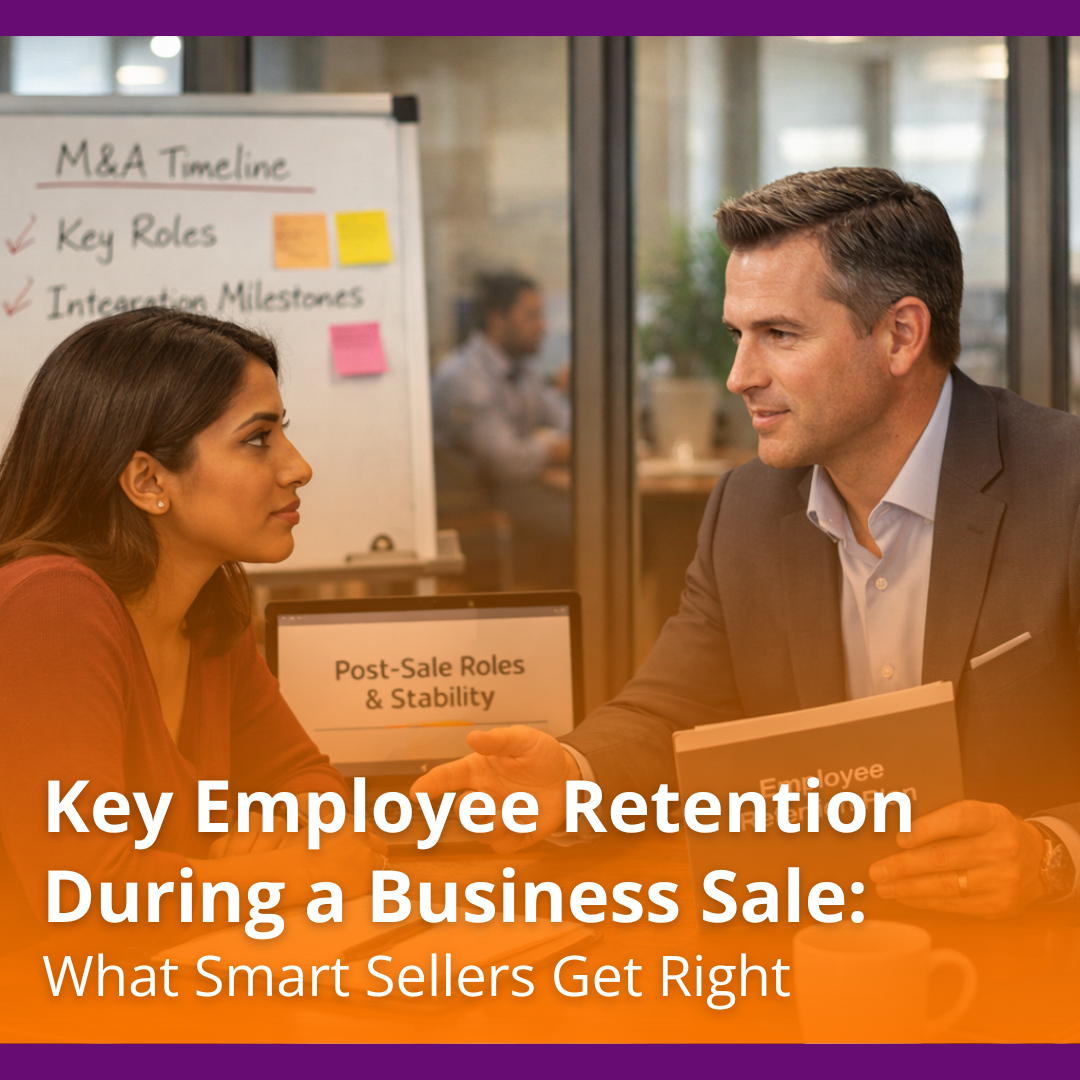How to Know If You’re Emotionally Ready to Sell Your Advisory Practice
You have pictured the day you sell your advisory practice. The deal closes. The pressure lifts.
Comprehensive, data-driven valuations and comparative equity analyses to accurately price your practice, establish market benchmarks, and support informed decision-making.
Comprehensive M&A guidance encompassing deal structuring, negotiation strategies, market listings, and transaction closings.
Comprehensive systems, targeted coaching, and in-depth assessments designed to optimize operational efficiency and enhance advisory team effectiveness.
Strengthen continuity through the implementation of formal continuity agreements, the establishment of legal entities, execution of enforceable legal contracts, and securing appropriate capital resources.

Many financial advisor practice owners nearing retirement wonder when the right time is to exit. Often, they consider their age, the age of their clients, new challenges they want to tackle, or other life factors. Very few stop to ask themselves if they can actually afford to retire.
In our experience, even though their job is to look after the financial well-being of their clients, many advisors neglect to do the very real and necessary work of laying down a financial plan for themselves and to evaluate how their practice, and the sale of the practice, fits into the equation. The sad truth is that when they decide they are ready to retire many advisors realize that they can’t afford to sell their practice. Which is why it is so important that if you are one of the many advisors looking to retire in the next 5-10 years, you need to start planning now and doing the necessary work to secure your own financial future.
The first step is to outline what you want for yourself after retirement. Do just as you would for a client. Define any ongoing career goals, future business plans, or, if taking a true retirement, what activities and lifestyle you want to enjoy. This will help you set your target financial goals and understand what you will need to live out your next chapter.
The next step is to get a clear picture of what your practice is actually worth today. Don’t rely on industry averages or a rule of thumb to determine your practice value. Instead, secure a professional third-party valuation. A third party will employ sound methods for determining your practice value and arrive at a number that reflects what the market is really willing to pay, as well as what you can truly get for it if you were to sell in the next six months.
If the valuation is less than what you need or if you plan to sell several years from now, you want to utilize the data in the valuation to determine what you need to do to maximize your practice value and eventually grow to a price that affords you the retirement you want. Generally, your valuation will include benchmarks and a consultation with an expert that can tell you what factors will drive the most growth in value. It can take a few months or several years to reach the valuation you desire. Which is another reason why it is so important to think ahead and start working toward your goal as early as possible.
Just like with your clients, you have to look at your own retirement as an approaching horizon line. You want to do everything you can to ensure that you arrive at that point fully prepared and equipped to transition into your next phase of life.

Todd Doherty serves as Vice President for Advisor Legacy, where he leads advisors through the full M&A lifecycle—readiness, valuation analysis, buyer/seller matching, due diligence, and post-close integration. With more than 15 years in senior roles at financial advisory firms and hands-on ownership experience, Todd brings an operator’s lens to every engagement. His writing focuses on practical ways to boost enterprise value, structure win-win deals, and avoid execution risk. Todd collaborates closely with the firm’s valuation, lending, and legal partners to help advisors make confident, data-driven decisions.
Receive timely articles, tip sheets, events, and more right in your inbox.

You have pictured the day you sell your advisory practice. The deal closes. The pressure lifts.

Selling a company is often the largest financial event of a business owner’s life. Yet most exit conversations still revolve around valuation and...

Are you preparing to sell your business with a team you want to keep intact? Then you’re already thinking ahead. The moment a sale is in motion, your...